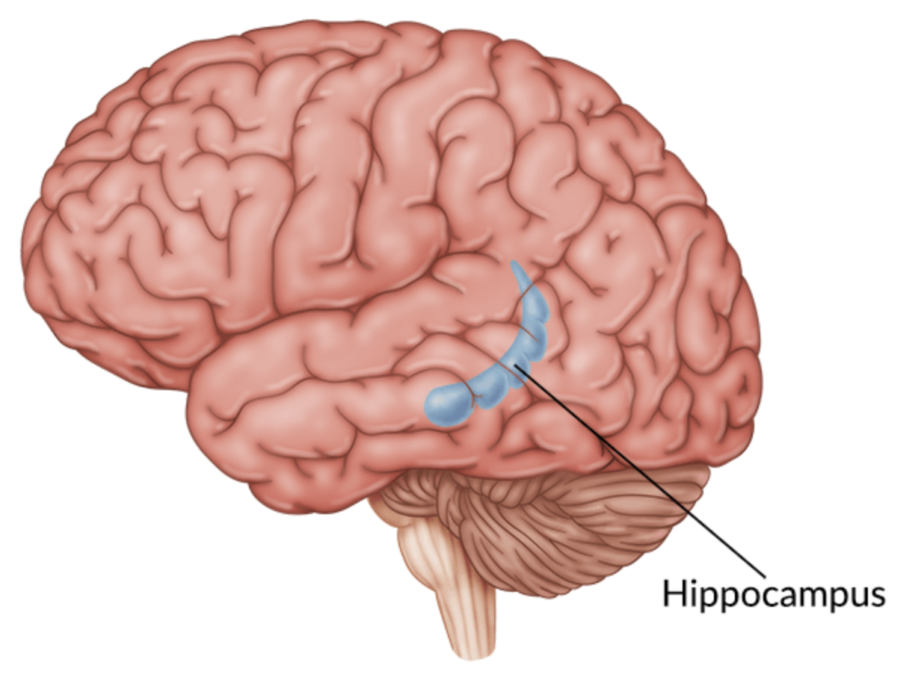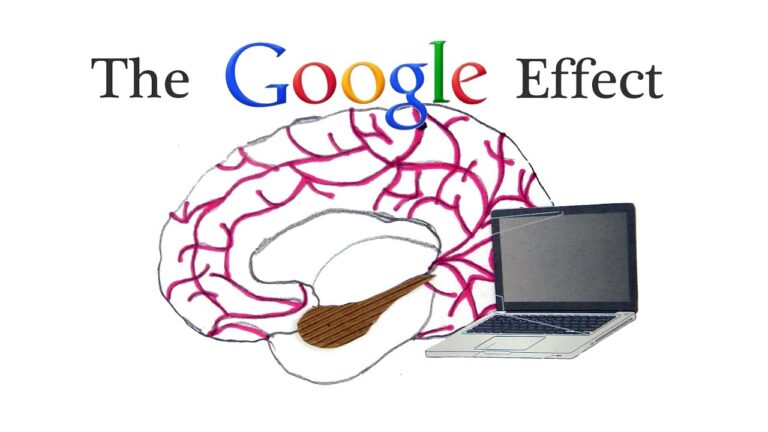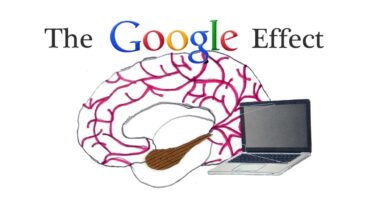はじめに
TEDのエデュケーション動画にはまっている。短いものなら2-3分のものもあるし、4-5分のものも多い。昨日に続いて、今回はタイトルにあるようにGoogleを使うと記憶力が低下するかという刺激的な動画を選んだ。携帯を使い始めてから電話番号を覚えられないとか、PCを使い出してから漢字を書けなくなったという経験は誰しもあると思う。その原理を分かりやすく解説してくれていた。まずはTED edを見てほしい。
Google効果(google effect)
今回のサブテーマはGoogle効果だ。Google効果はデジタル健忘症とも呼ばる。スマホやネットにアクセスすればすぐに見つかる情報を覚えられないし、思い出せないし、すぐに忘れてしまう傾向だ。ヒトは、覚える必要がないと判断すると覚えない傾向にある。有名なエピソードはアインシュタインは図書に書かれていることは見れば良いので覚えないというもの。ただ、最新のfMRIによれば、脳はオンラインの時の方が読書などオフラインの時よりも活発に活動していた。つまり、脳は情報そのものを記憶しないけど、どこに情報が保管されているかを記憶して、貴重な脳の活動リソースを節約するようだ。

(出典:outrankco)
TOEFL対策
TOEFLの試験で問われるようなことは、DeepLによる翻訳や、Grammarlyによる文法チェック、GoogleやWikiによる情報検索を活用すれば100点を取れるけど、それらに依存していては自分の脳は作業を効率化するために、それらの利用方法だけを覚えてしまう。しかし、実際のTOEFL試験では、当然ながらそれらを活用することはできない。逆に言えば、脳に対しては、理解して記憶する必要があることを体感させる必要がある。わからなくても繰り返し聞いたり、理解できなくてもすぐに翻訳したりせずにじっくりと考えることが必要かつ有効なようだ。ただ、問題はそれを実行できるかどうかだ。答えを見れば手取り早いのに、それをせず遠回りをすることを我慢できるかどうかだ。
TED edの理解度チェック問題
エデュケーションのジャンルだけなのだろうか。動画を視聴した後に質問に回答するようになっている。これがなかなか本質をついている。今回であれば、次のような設問だ。Q1とQ2が選択式で、Q3とQ4が記述式だった。
Q1) Which of the following memory types do you use to remember your home address?
長期記憶のうちの陳述記憶(nondeclarative memory)と非陳述記憶(declarative memory)があり、このTEDによれば、陳述記憶が数字や文字や意味を記憶し、非陳述記憶が技能、感情、動作などを記憶するとある。なので、回答は陳述記憶となる。

(出典:bsd)
Q2) The process in our brain of how we form, retain and recall memories changes when you consistently rely on Google.
グーグルなどに依存した時にどのように脳内の処理が変化するかを述べよという意味だ。fMRIの試験結果からは、ネット利用者の方が本を読んでいる人よりも脳の活動が活発だった。つまり、脳内で処理を省略しているわけではないが、コンテンツそのものを記憶する代わりに、コンテンツへのアクセス方法を記憶していると説明されていたので、そのような回答にした。
Q3) What is the “Google effect”?
これは前述の通りで簡潔に回答した。
Q4) What did the fMRI show about people who are internet savvy?
これも前述の内容を簡潔に回答した。
不明な単語
今回も意味不明な単語は多くないけど、少し自信のない単語を含めて列挙しておきたい。
shudder:震え、震えだとshakeやshiveringを連想する。調べるとshakeは物理的な震え、trembleは不安や体調不良による震え、shiverは寒さによってガタガタと震える様子だ。一方、shudderは恐怖や嫌悪によるぞっとする震えだ。
fingertips:指先。この場合はスマホやPCを指先で操作して調べる様を示している。なお、このfingertipsは多彩な熟語がある。活用できるとかっこいい。
declarative:宣言型。今回は記憶に関してなので専門用語として陳述型が使われている。declareが宣言するとか、布告するの意味なので、類推しやすい。
nondeclarative:非宣言型。declarativeの否定系なので類推しやすい。
hippocampus:いわゆる海馬。大脳辺縁系の一部で、記憶や空間学習能力を担う。イギリスの認知神経科学者であるファラネ・ヴァルガ=カデム(1949年生)は1997年に、エピソード記憶は海馬体、意味記憶は海馬傍回が担うという機能分化論を提唱した。

(出典:Flintrehab)
parahippocampal gyrus:これは全く分からなかったけど文脈から脳のどこかということは類推できた。先に説明した海馬傍回(Parahippocampal gyrus)の意味だ。海馬の周囲に存在する灰白質の大脳皮質領域を言う。
general trivia:一般的で瑣末なこと。triviaは雑学的な知識やくだらないことを意味する。語源はラテン語の三叉路であり、3を意味するtresと道を意味するviaの組み合わせだ。数学では自明とも訳される。
transactive memory:外部記憶システムを利用すること。文脈でほぼ類推はできる。グループ内で情報を共有し合うようなシステムをメタトランzアクティブメモリーとも言うようだ。
tweaking:微調整の意味。文脈からほぼ理解できる。tweakとはひねるとか、つねるの意味だ。類義語には、ちょっとつまむnipや、ひねるtwist、ねじるquirk、困らせるやピンチのpinch、ねじるやレンチのwrenchなどがある。
internet savvy:ネットに精通したの意味。フランス語では知ることをsavoirというが語源は同じようだ。
psychology:心理学の意味。TED edのこの心理学のジャンルに登録すると隔週で新着情報が届くようだ。
まとめ
ネットやスマホの依存症が問題になることがある。特に子供たちが心配だ。なぜダメなのかと言えば、若いので、ネットやスマホが身体の一部として組み込まれてしまうためだろう。そして、問題なのは、いつも利用できるとは限らないこと。今回のような緊急事態や、各種試験会場では使えない。そのような時には、分かっているつもりなのに対応できないということになる。ツールを使いこなすのは大切だけど、ツールなしでも自律的に正常に動作するように心身を鍛えておく必要がありそうだ。
以上
最後まで読んでいただきありがとうございました。
拝
参考:英文(ディクテーションしたもの)
In 2009 a plane was flying from New Jersey to Buffalo, New York. As it cruised on autopilot at 16,000 feet, it encountered a massive storm front. Approaching the airport, the plane`s controls began to shudder loudly assign the plane was losing lift and might stall the pilot took action he pulled back on the controls, lifting the plane`s nose. This was precisely the wrong thing to do – instead of preventing a stall, he caused one. The plane spun out of control and plummeted into a house killing all on board. How had this pilot forgotten his basic emergency training? Is technology ruining our memory? We are all living in the age of Google. When we Google one thing and Wikipedia another, we are not relying on our brains but on our fingertips. Is it making us dumber?
First, you have to consider there are two main types of memory, nondeclarative memory for skills, emotions, and movement; like how to ride a bike. And then there is declarative memory, for facts and information, like your phone number or the capital of Australia. So when we use technology to look up information, we are extending our declarative memories. But is that at the expense of what is in our brain? The hippocampus is a major part of the brain we use in declarative memory function. It gives us the ability to retain and recall memories about facts, like the largest animal on earth, and events, like your first kiss or the first CD you bought.
The formation of new declarative memories relies on both the hippocampus and a region around it, the parahippocampal gyrus. So what happens when we have information at our fingertips and we don`t need to remember facts anymore? Well, the process in our brain of how we form, retain, and recall memories remains the same. What changes is what we choose to form memories about. Instead of remembering more facts, we remember where to find them this is called the Google Effect. In one study, participants who were told they could later look up the answers online did not make the effort to remember general trivia. When asked a question people actually thought about computers and search engines instead of searching their own memories for the answer. The use of external memory systems is called transactive memory and it is not new. Einstein once said I do not carry such information in my mind since it is readily available in books. Plus we have relied on other people to remember things for us as a husband or wife. Now there is a third wheel in the relationship Google and it is connecting us like never before. As for that lump of matter inside of our head so that is connected too. For our declarative memory, using technology just means we are tweaking our memory hard drive so we remember where the files and folders are, where we can find information, not necessarily the facts themselves.
This will probably happen more and more as our relationship with devices grows. But it is not necessarily a bad thing! fMRI scans showed that for people who are internet savvy, areas of our brains are way more active searching for information online than when reading a book. In our brains our hippocampus is still working the same way, we are just choosing to retain the most efficient way to find information, and that is usually online. We are all sharing the work of remembering, and it makes us collectively smarter. It is actually pretty adaptive. The only disadvantage is when you need knowledge on the fly. For split-second decisions, all you can search is that lump of matter inside your head. If you have a burning psychology question, leave it in the comments and subscribe to Brain craft for a new video every other week.




